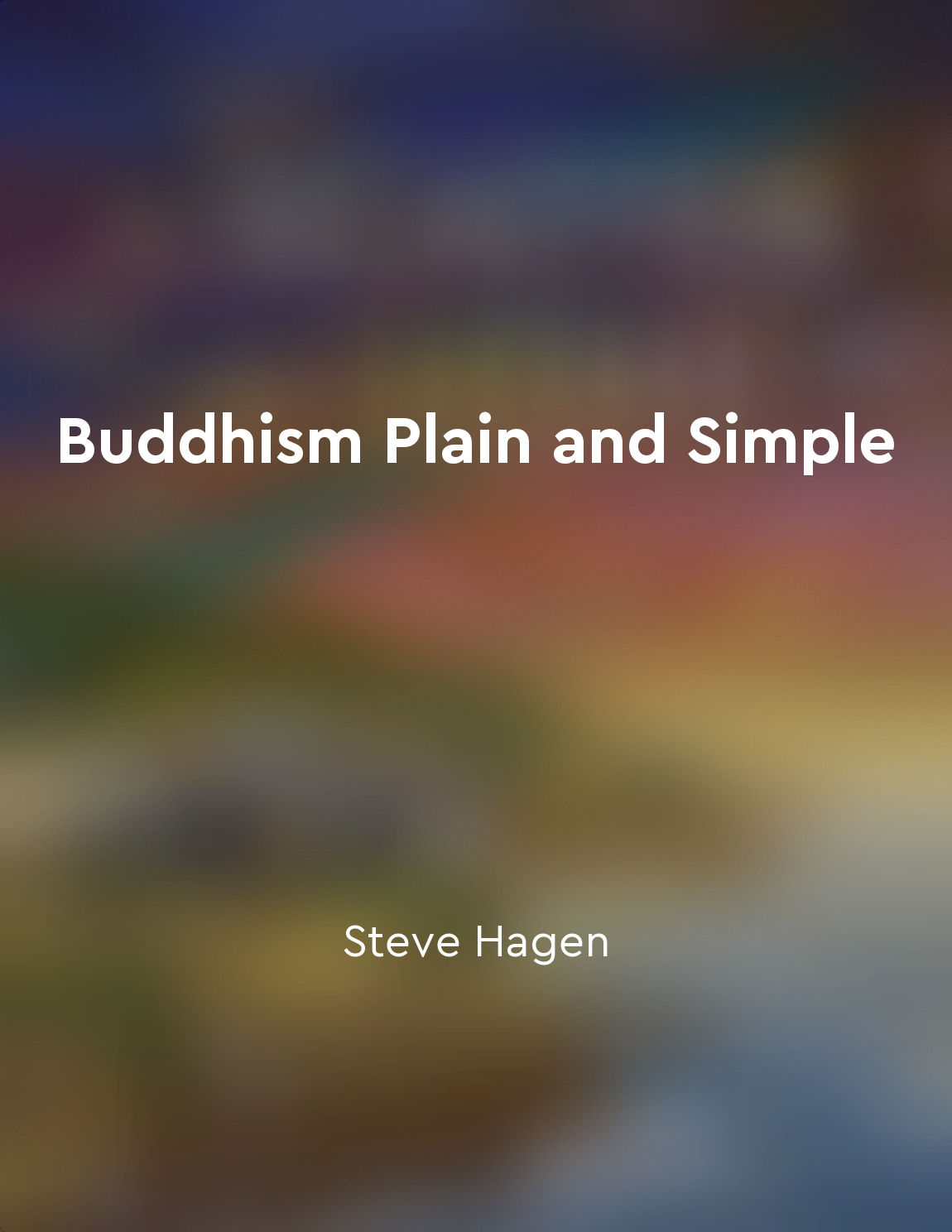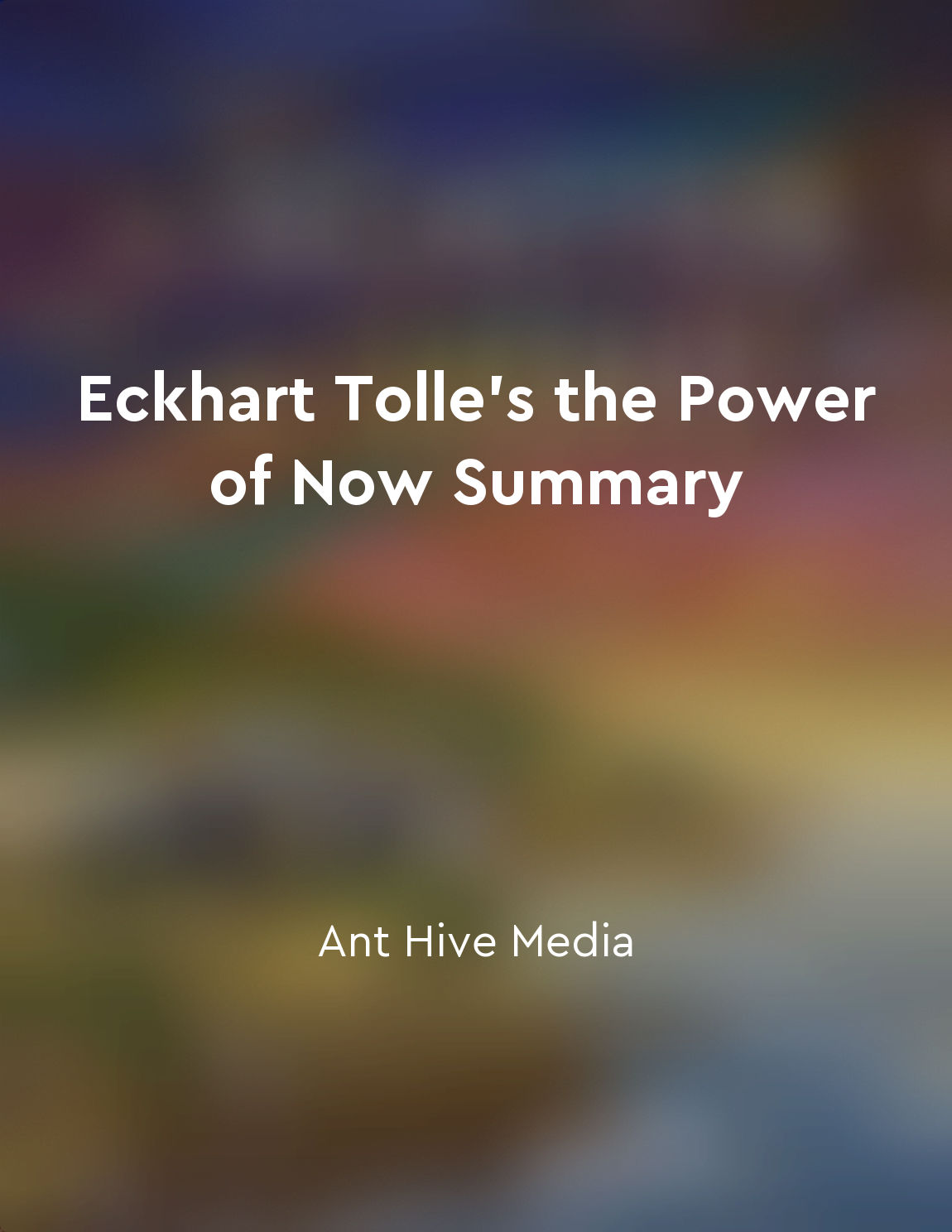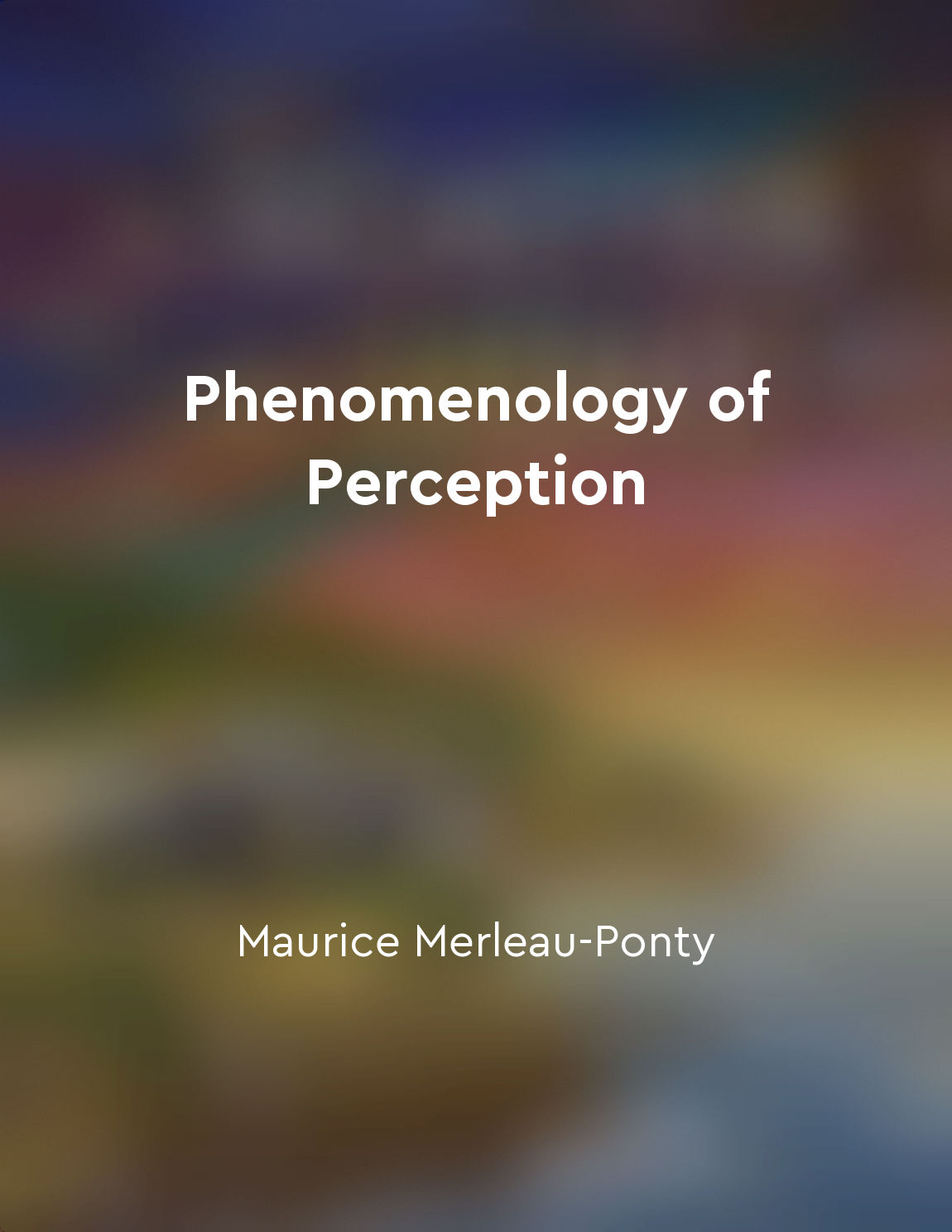The Five Aggregates are the components of personal identity from "summary" of Buddhism For Dummies by Jonathan Landaw,Stephan Bodian,Gudrun Bühnemann
The Five Aggregates play a crucial role in understanding personal identity in Buddhism. These aggregates are form, feeling, perception, mental formations, and consciousness. Together, they make up the totality of an individual’s being. Form refers to the physical body, while feeling encompasses both physical and mental sensations of pleasure, pain, or neutrality. Perception involves recognizing and categorizing sensory information, while mental formations include thoughts, emotions, and volitions. Consciousness is the awareness that experiences these aspects. By breaking down personal identity into these five aggregates, Buddhism emphasizes the impermanent and interconnected nature of the self. Form is the most tangible aggregate, representing the physical body that we identify with. However, Buddhism teaches that this form is subject to constant change and decay, highlighting the impermanent nature of physical existence. Feeling and perception refer to the sensory and cognitive aspects of personal identity, which are also transient and subject to fluctuation. Mental formations encompass the mental processes that shape our thoughts, emotions, and actions, illustrating the dynamic and ever-changing nature of the mind. Consciousness, the fifth aggregate, is the awareness that binds these components together but is also impermanent and interdependent.- Buddhists aim to cultivate insight into the nature of existence and the self. This perspective encourages practitioners to let go of attachment to a fixed and permanent identity, leading to liberation from suffering and the cycle of birth and death. By recognizing the interconnected and impermanent nature of the Five Aggregates, individuals can develop a more profound understanding of the self and their place in the world. This insight can ultimately lead to greater compassion, wisdom, and freedom from the illusions of ego and identity.
Similar Posts
True power comes from connecting to your inner essence
The key to true power lies in connecting with your inner essence, the core of who you are beyond the mind-made self. This essen...
Anxiety can be a gateway to deeper understanding of the self
In the depths of anxiety, one can find a key to unlock the mysteries of the self. Anxiety is not merely a negative emotion to b...

Mindfulness is about being present in every moment
Mindfulness is not about trying to achieve anything, nor is it about attaining a state of mind that is serene or peaceful. It's...
Learn to listen to your body's signals
Listening to our body's signals is an essential skill that we must cultivate on the path of health and well-being. Our body is ...

Realizing the impermanence of all things helps us detach from the illusion of self
Understanding that everything in our world is impermanent can help us break free from the idea of a fixed and unchanging self. ...

The body is not a separate entity from the world
Merleau-Ponty demonstrates that the body is intimately intertwined with the world through our lived experiences. Our body is no...
Consciousness is fundamental to our experience of the world
Consciousness is the substrate of all our experiences. It is the medium through which we perceive the world, think, feel, and a...
Embrace challenges as opportunities for growth
In the journey of life, challenges are inevitable. They come in various shapes and sizes, testing our limits and pushing us out...
The past can never define us
The notion that our past defines us is a common misconception that many people hold. However, in "Being and Nothingness," Sartr...
Challenges of spiritual practice in everyday life
In the midst of our daily routines, it can be easy to forget the deeper spiritual practices that we hold dear. We may find ours...

